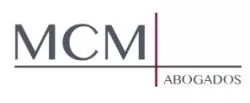Mexico's National Hydrocarbons Commission ("CNH") held on August 1, 2016, an extraordinary session where it resolved, among other matters, to revise the regulation applicable for the quantification of hydrocarbons reserves in Mexico.
Background:
Mexican law provides that CNH has the authority to regulate on hydrocarbons reserves quantification matters, and also to integrate the quantified values to determine the final values of the country's hydrocarbons reserves. Such regulation has as a principle – pursuant to the common international practice – that as part of the reserves quantification there is a valuation and certification by an independent certification expert with recognized experience and capabilities (the "Certifier"). Each year, there is a quantification of reserves by the relevant operator and a Certifier. In this regard, the regulation has established that – if there is a significant inconsistency between the analysis of the relevant operator and the Certifier – a procedure should be conducted to solve such inconsistency.
Problem:
CNH mentioned in its extraordinary session, with respect to the latest 1P reserves figures, the differences between the operator's and the Certifier's reports were minimum and irrelevant; however, there are some cases with respect to the latest 2P and 3P reserves figures where the differences had a significant value. CNH has established maximum limits of inconsistency. In the case of the 2P and 3P reserves, the limit of deviation between the Operator's (Pemex) and the Certifier's report that is allowed is 20%, and when such limit is surpassed there are certain criteria applicable, including a procedure to achieve a conciliation that will allow to finally reach a determination regarding which is the best reserves estimate. According to CNH, this method has been effective and has worked pretty well with respect to Pemex (Mexico's national oil company which operates under the Entitlements it received in Round Zero); however, while considering this method for new operators that have signed Exploration & Extraction Contracts as a result of Mexico's Round One (in shallow waters and onshore), a more expeditious and efficient process should be established, because in the case of the 2P and 3P reserves, the review process may take several months.
Therefore, the CNH's commissioners have considered that it would be convenient to revise the regulation in this matter, in order to identify what method may be simpler and more efficient, with the intention that in first place, the figures of the Certifier already include and have already considered the comments and arguments that are produced by the corresponding operator, so that the Certifier's report may be the definitive one (to avoid the need of carrying out a second step, for the review process currently established in the regulation).
Consequence:
CNH resolved that it would initiate a procedure to revise the current regulation on hydrocarbons reserves quantification aimed at improving the reserves review process. Such improvements will be discussed shortly with a Consulting Board (Consejo Consultivo) to be formed for such purposes, in order to obtain the opinions from the operators and the industry. Once the revised regulation is ready, it will be submitted to Mexico's Federal Commission on Regulatory Improvement ("COFEMER") for the notice-and-comment period.
If you are a hydrocarbons operator (or a CIEP holder to be migrated) or a reserves certification company, perhaps it would be productive to seek involvement in the Consulting Board to be formed for this matter, for instance, through the different industry associations. Likewise, to be prepared to make comments to COFEMER during the notice-and-comment period. This regulation will have an impact in all the E&E Contracts currently in place and those that will be awarded shortly in L04, Round Two, etc.
The content of this article is intended to provide a general guide to the subject matter. Specialist advice should be sought about your specific circumstances.

